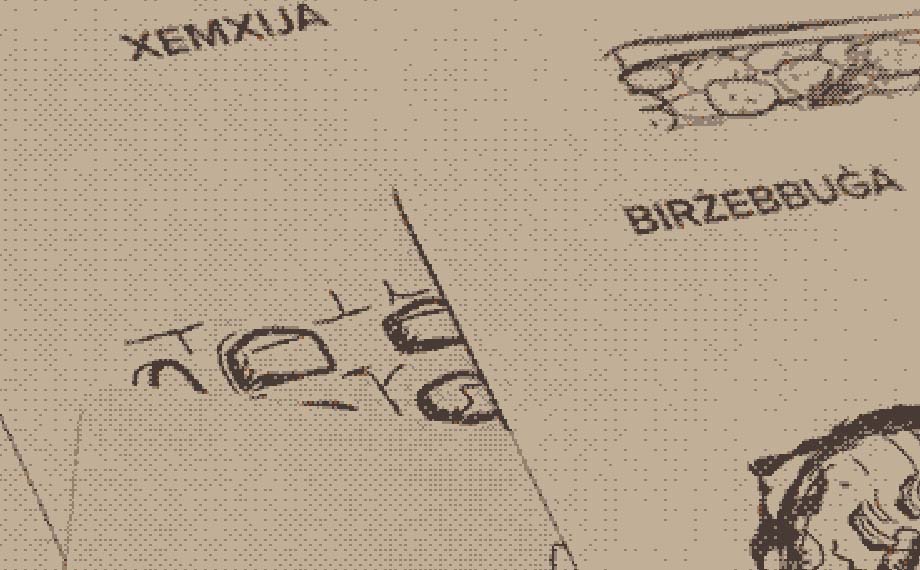
Bliet ta' Malta
0241226
Maltese is a Semitic language written in the Latin script.
It combines Arabic-root words with influences of Italian, Sicilian, and English.
Alphabet
It is basically the Latin alphabet with the addition of diacritics (ċ, ġ, and ż) and pharyngeal letters (għ and ħ).
| Letter | IPA |
|---|---|
| A | ɐ, aː, æː |
| B | b |
| Ċ | t͡ʃ |
| D | d |
| E | eː, ɛ, øː, ə |
| F | f |
| Ġ | d͡ʒ |
| G | g |
| Għ | (ˤ)ː, ħː |
| H | ∅, ħ |
| Ħ | ħ |
| I | i̞ː, iː, ɪ |
| J | j |
| K | k |
| L | l |
| M | m |
| N | n |
| O | o, ɔ, ɒ |
| P | p |
| Q | ʔ |
| R | r, ɹ |
| S | s |
| T | t |
| U | u, ʉ, ʊ |
| V | v |
| W | w |
| X | ʃ / ʒ |
| Ż | z |
| Z | t͡s / d͡z |
-
għ pharyngealises and lengthens vowels and is pronounced like ħ at the end of words.
-
h is silent, except at the end of words, where it is pronounced like ħ.
Vocabulary
The vocabulary combines Arabic-root words with terms influenced by Italian and English.
Arabic-origin words: dar (house), raġel (man), mara (woman).
Italian-origin words: skola (school), sigurtà (security).
English-origin words: komputer (computer), televixin (television).
Phonology
Stress is usually placed on the penultimate syllable, unless another syllable has a long vowel or final consonant, or a stress-changing suffix is added. It also has pharyngeal and emphatic sounds, such as għ and ħ.
87.78 kB